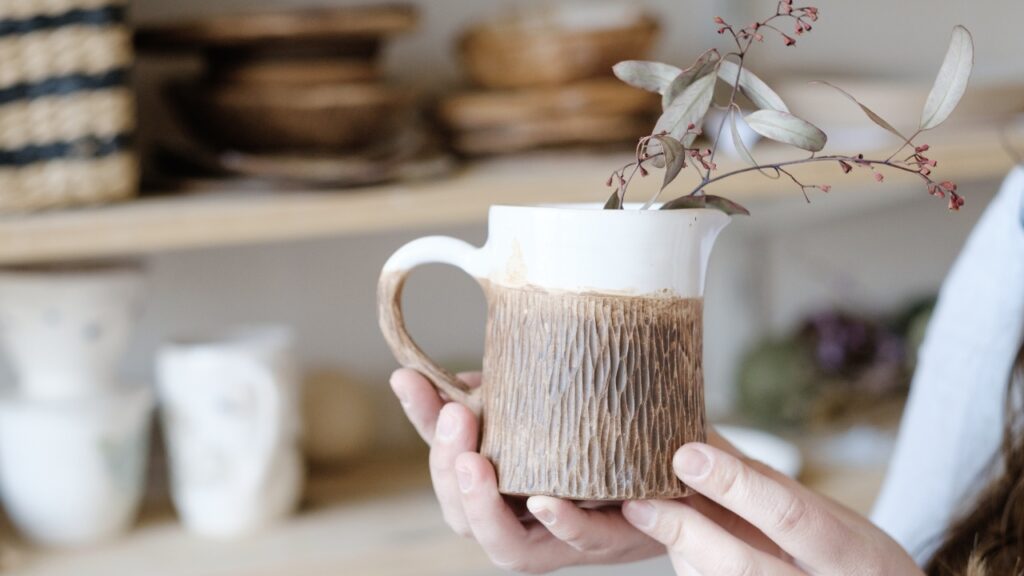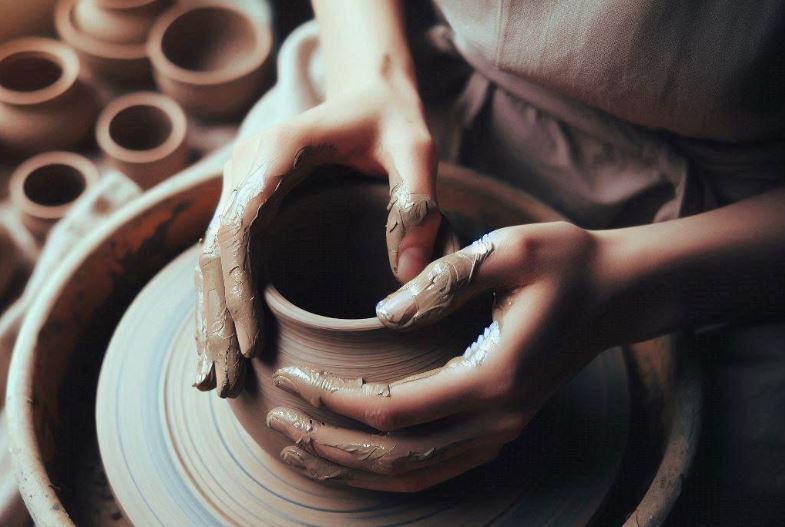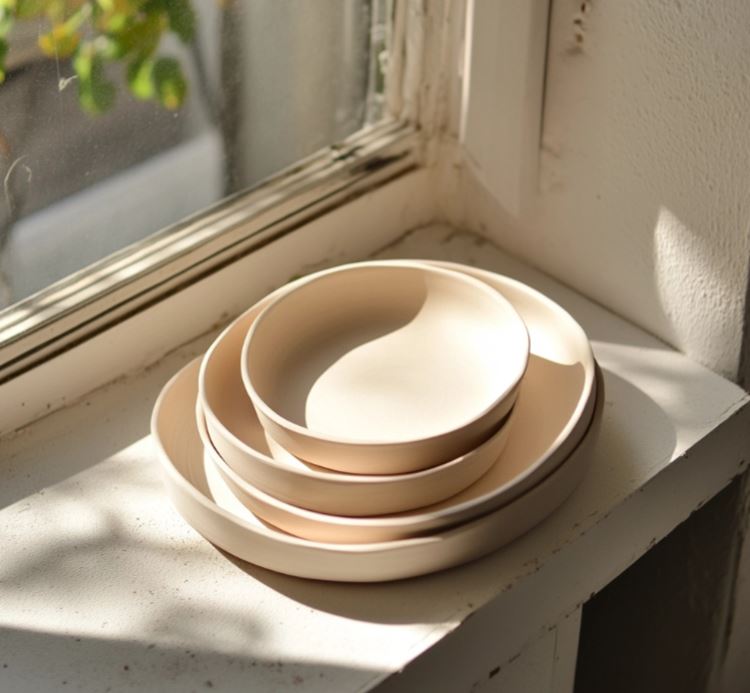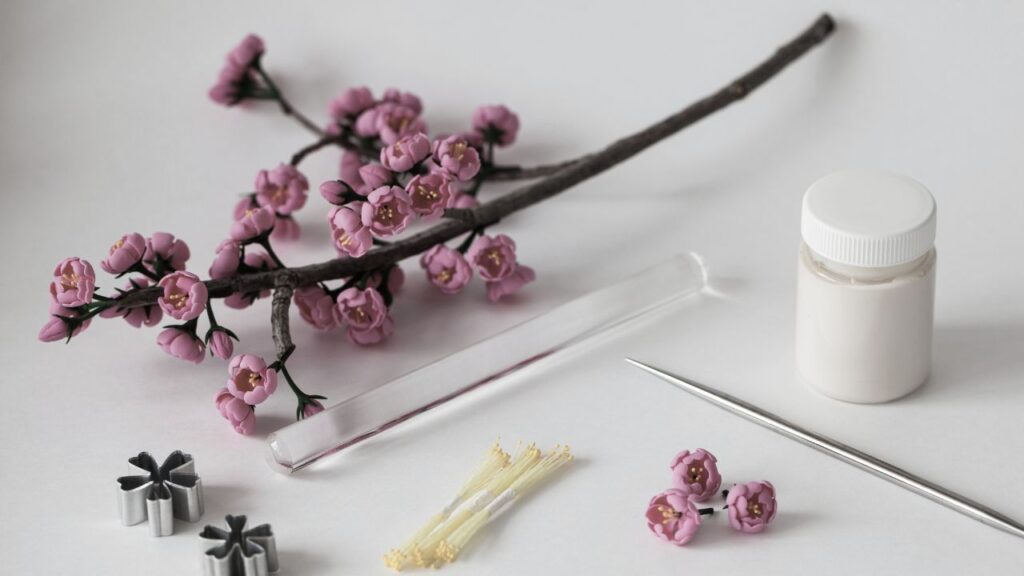9 Best Ovens For Polymer Clay
Here are the best ovens to use for Polymer clay. When it comes to working with polymer clay, the right oven makes all the difference. A good oven helps your creations cure evenly, without burning or underbaking. In this post, I’ve gathered some of the best ovens for polymer clay. These options that are dependable, easy to use, and perfect for small crafts and art projects.
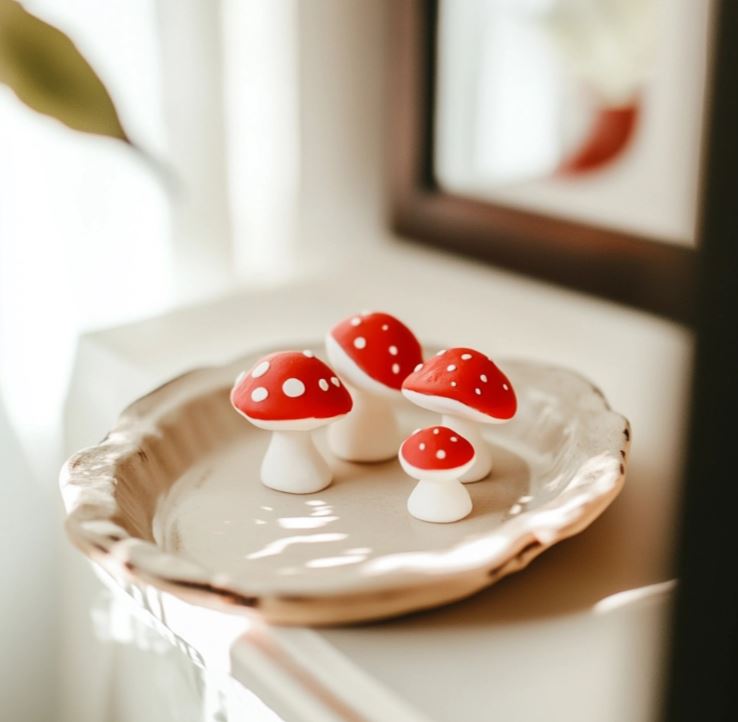
I always come back to the little toaster oven I keep just for baking clay that I grabbed from the thrift store. It’s nothing fancy, but it heats evenly and fits everything from earrings to small figurines. There’s something really satisfying about pulling out a tray of tiny finished pieces that are fully cured and ready to paint or glaze.
Best Ovens For Baking Polymer Clay
I never bake polymer clay in the same oven I use for food because many clays, mica powders for polymer clay, and colorants aren’t food safe. When you bake pieces with embedded materials like mica powder, metallic flakes, or alcohol inks, they can release fumes or leave behind trace residues.
Even if there’s no visible mess, I don’t want to risk any of that mixing into the air or onto surfaces I cook with, so I use a separate toaster oven just for crafting.
1. Total Chef Oven
The Total Chef toaster oven is a small but good pick for baking polymer clay. It heats evenly and doesn’t take up much space, which is great if you have a tiny craft area like I do. I love that it’s simple to use. Just set the temp, pop in your tray, and keep an eye on your timer.
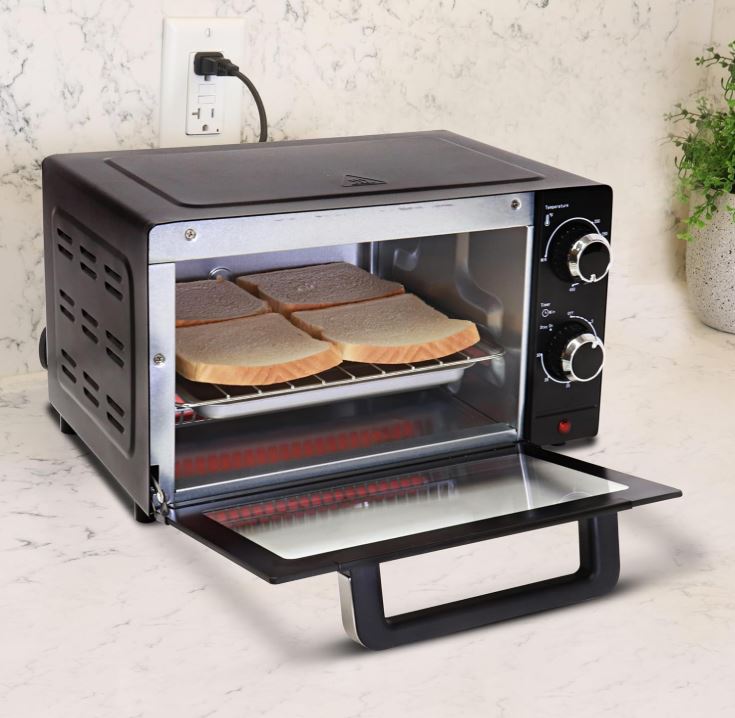
2. Black & Decker Toaster
Here’s an oven for polymer clay for a small crafting businesses and Etsy shops. It has turning knobs, a removable tray for loading and unloading of your polymer clay creations, and isn’t very large so it will fit right on your crafting desk.
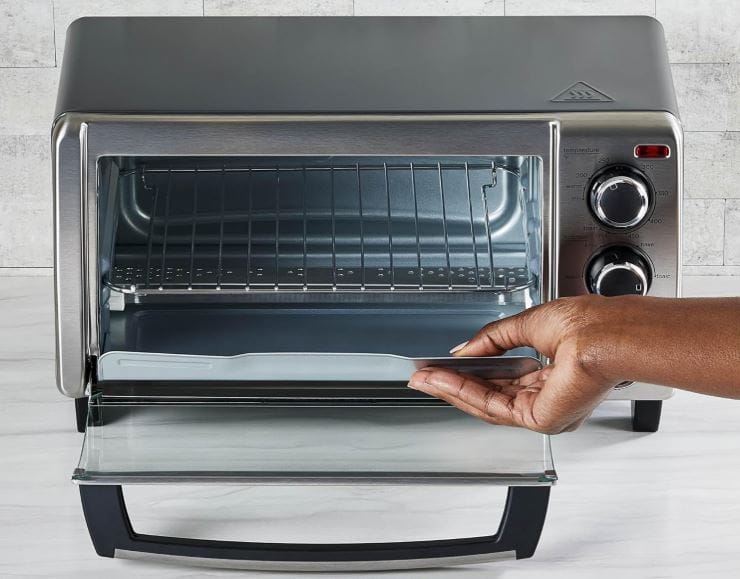
3. Hamilton Beach Oven
If you’re all about making your polymer clay baking sessions a breeze, you’re gonna love this one. Imagine a countertop toaster oven that’s not just easy to reach into, but will also hold larger polymer clay projects.
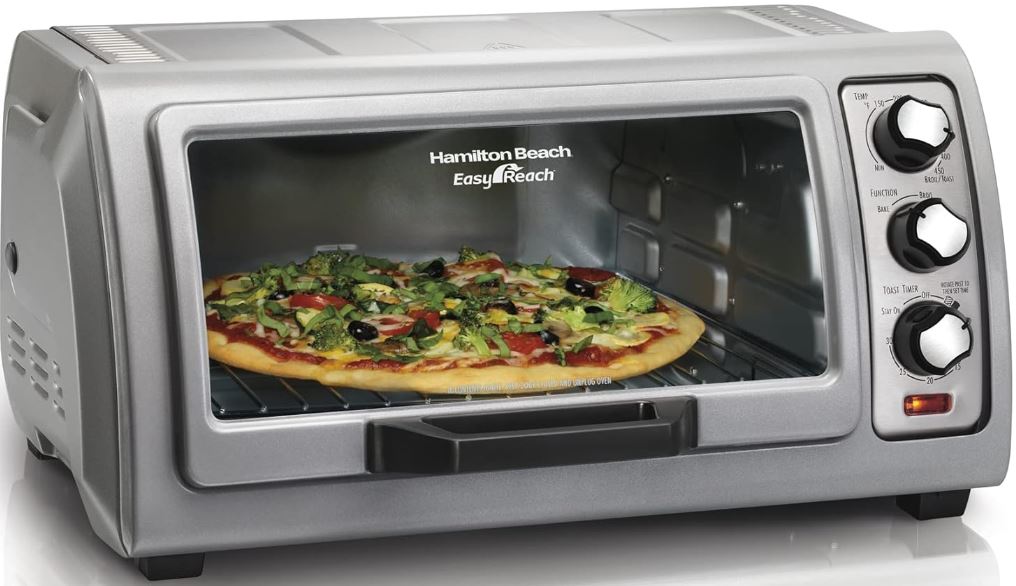
With its nifty Easy Reach Roll feature, you will be able to get your creations in and out easily. And guess what? It’s not just for crafts, this oven is a fantastic choice for your Etsy shop too. 🎨🔥
4. Black & Decker TO1745SSG
The Hamilton Beach oven is a budget-friendly option with lots of room for baking polymer clay projects. It heats evenly, so your pieces come out just right every time. This oven is a good pick if you’re working on a small clay business or just need extra space for multiple pieces.
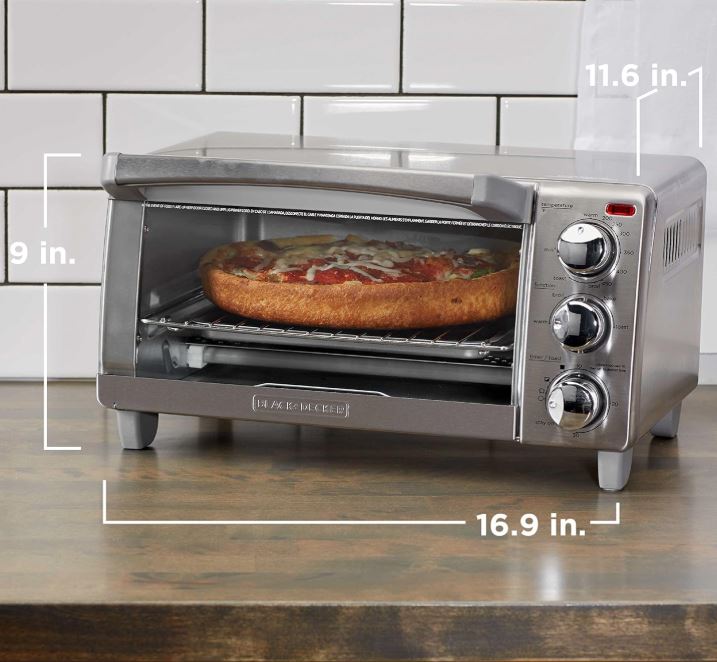
5. Cuisinart Countertop Oven
The Cuisinart oven is a great choice if you want something stainless steel with a non-stick interior. It heats up fast and bakes polymer clay evenly, which helps avoid any burnt spots. Plus, the non-stick surface makes cleanup super easy after a crafting session.
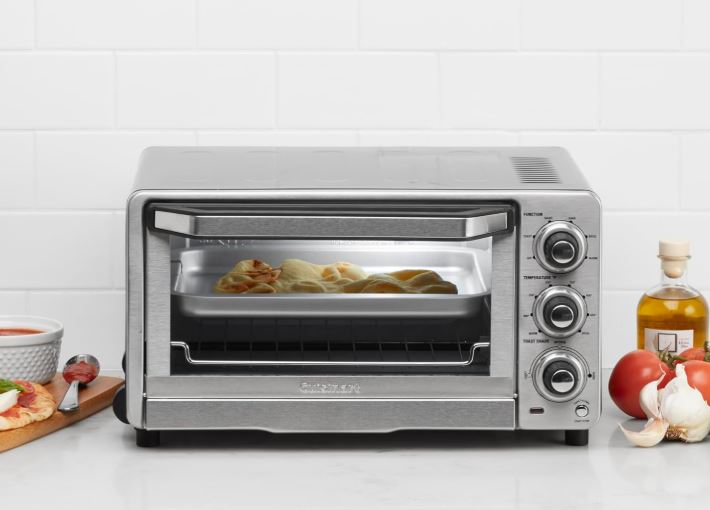
6. Hamilton Beach Stainless
Hamilton Beach ovens work really well for baking polymer clay jewelry and other small craft projects. It heats evenly, so your pieces come out just right without burning. I like that it’s easy to use with the knobs and fits lots of different shapes and sizes.

7. Elite Gourmet Counter Top Oven
The Elite Gourmet toaster oven is a thoughtful gift for any polymer clay artist. Its compact size makes it perfect for small spaces, and it heats up quickly, so you can start baking your creations without delay. It has a good sized interior. Picture yourself sculpting, molding, and crafting with the freedom of space. You can really make those large batches like never before.
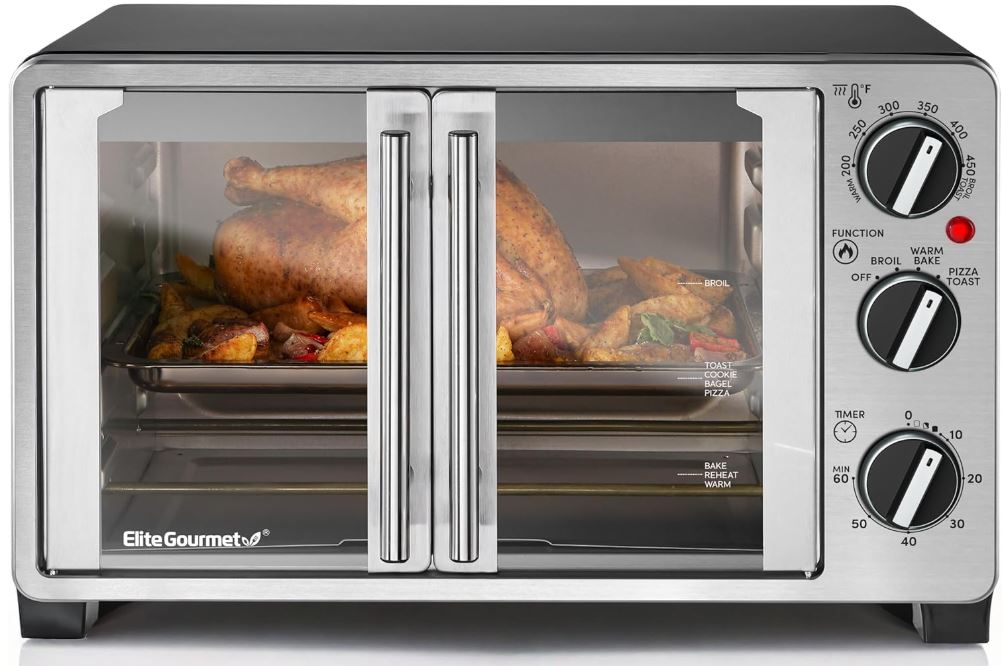
8. Nutrichef Countertop Oven
The Nutrichef countertop oven has lots of space, so it’s great if you make a lot of polymer clay stuff. You can bake beads, charms, or even small trays without running out of room. I’d still grab an oven thermometer though, just to make sure your pieces don’t get too toasty.
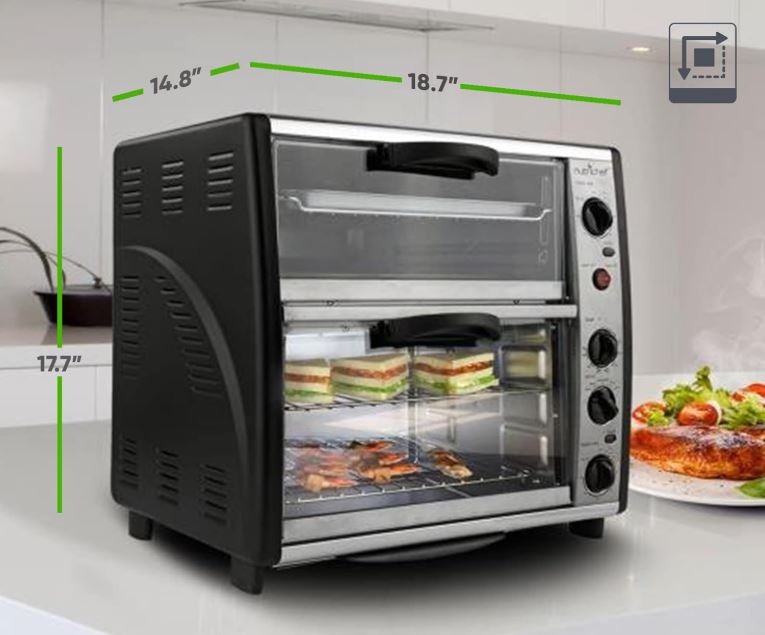
9. Large Elite Gourmet Oven
The Elite Gourmet oven is a good starter pick if you’re just opening your Etsy shop. It’s small, easy to use, and can handle all your polymer clay earrings, charms, and more. If you’re making batches every day, this one keeps up without taking over your whole space.
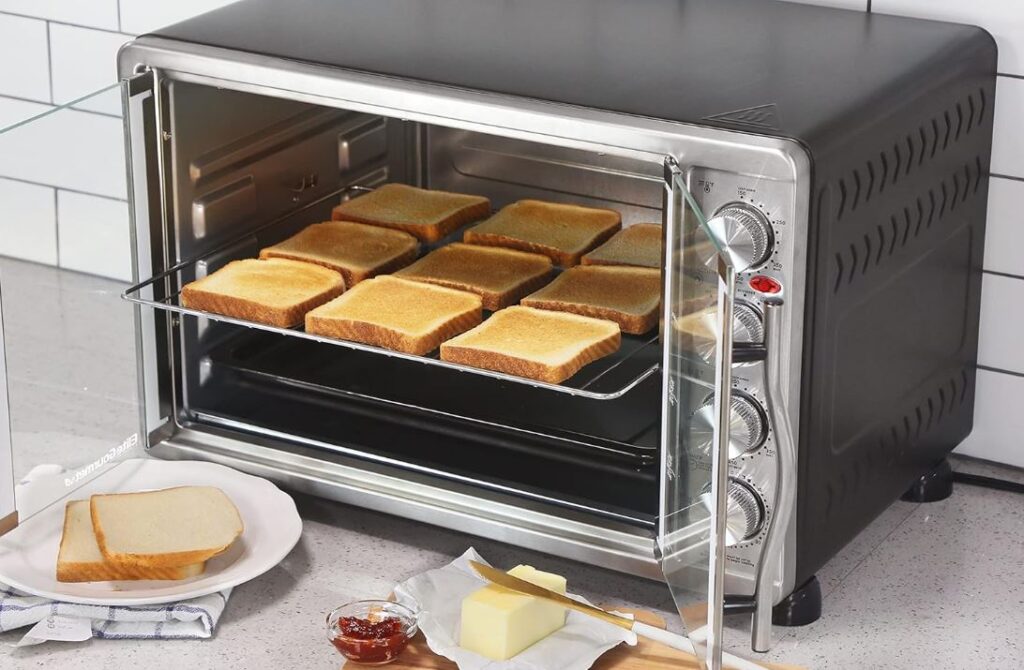
What temperature is polymer clay baked at?
The baking temperature for polymer clay can vary depending on the brand and type of polymer clay you’re using. However, a common temperature range is typically between 225°F (107°C) to 275°F (135°C). It’s important to check the packaging of the specific brand of polymer clay you’re using, as they usually give you recommended baking temperatures and times.
Here are some general guidelines for baking polymer clay.
- Fimo: Bake at 230°F (110°C) for 30 minutes.
- Sculpey: Bake at 275°F (135°C) for 15 minutes per 1/4 inch (6mm) of thickness.
- Premo: Bake at 275°F (135°C) for 30 minutes per 1/4 inch (6mm) of thickness.
Keep in mind that baking times can also vary based on the thickness of your polymer clay creation. Thicker pieces might require longer baking times, while thinner pieces may need less time.
It’s important not to go over the recommended baking temperature, as polymer clay can release harmful fumes if overheated. If you are not sure about a certain brand, then email them to double check.
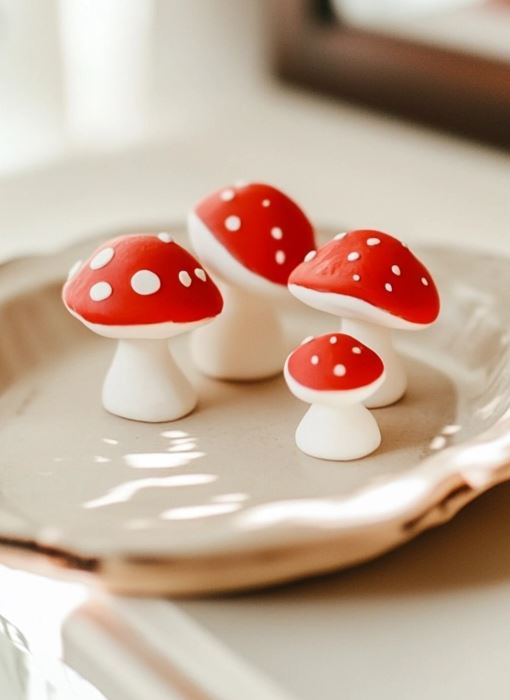
Choosing your polymer clay oven
Here are the top five things to keep in mind when purchasing an oven for baking polymer clay.
Temperature
Precision in temperature control is important for baking polymer clay properly. Some ovens even come with built-in thermometers or digital displays to help you check the temperature at a glance.
Even Heat Distribution
Polymer clay needs even heat distribution to bake right through. This prevents certain parts of your creations from getting over-baked while others stay under-baked.
So far my thrift store oven works great because it’s pretty small and will bake evenly. If you find that your clay isn’t baking properly, it could be the oven or the clay. Try a different oven or try a different brand of clay in the oven you are using.
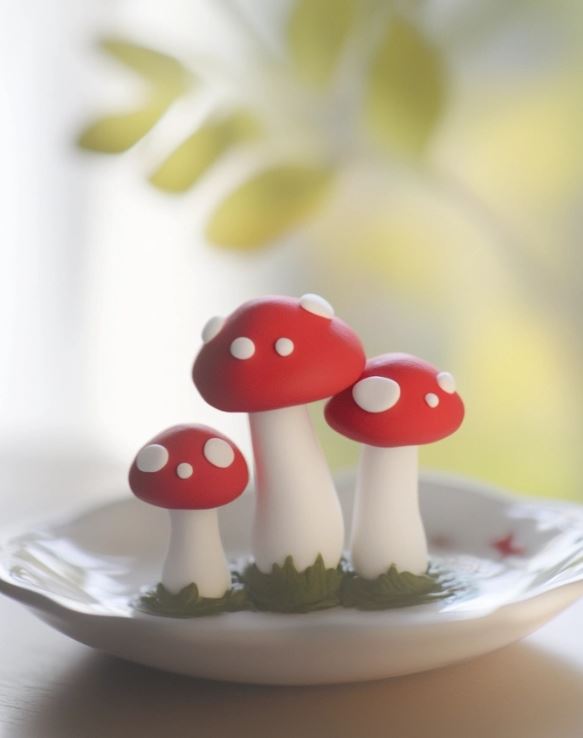
Size of the oven
The oven should comfortably fit your polymer clay projects without overcrowding. Having enough space allows for proper air circulation, which gives even baking. Keep in mind the types of creations you typically work on, and choose an oven that can bake large sizes if that’s what you need.
Thermometer
Some ovens come with built-in thermometers, while others might require you to purchase an external oven thermometer separately. Accurate temperature readings help stop over-baking or under baking of your polymer clay.
Safety features
Look for an oven with safety features like automatic shut-off timers, good insulation to prevent exterior heating, and a well-sealed door to help stop heat loss. Some ovens also have non-toxic interiors like stainless steel to stop any potential interactions with the polymer clay fumes.
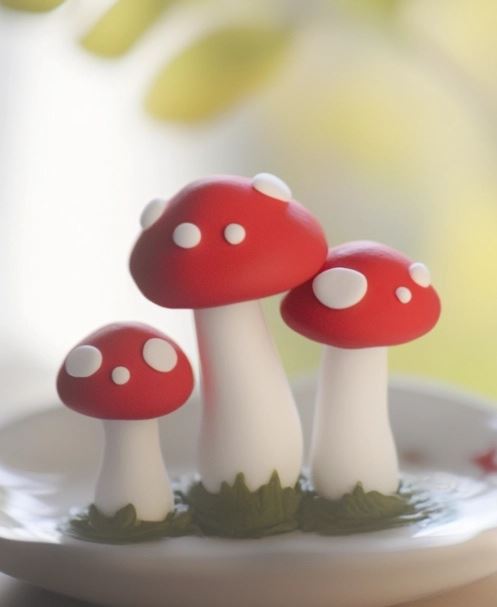
In Closing
Thanks for reading about the best ovens for polymer clay. If you’re starting a new project or just upgrading your setup, I hope this list helped. Don’t forget to share this post with your crafty friends, they might be looking for the same thing.
More Cottagecore Ideas


